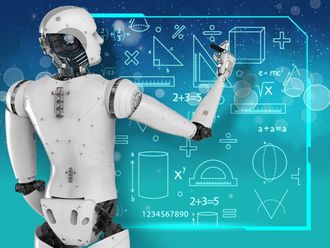
For many years it was believed that knowledge is power. Whilst this might have been the case in the past, significant and rapid advances in technology have raised doubts about whether this age-old aphorism still holds true.
The fourth industrial revolution is the current and developing environment in which disruptive technologies and trends such as the Internet of Things (IoT), robotics, virtual reality (VR) and artificial intelligence (AI) are altering the very meaning behind being a human. It is characterised by the fusion of technologies that blur the lines between the digital, physical and biological spheres in our world.
Unlike previous industrial revolutions which focused on improving our productivity through the gradual progression from human capital to a more technologically intensive production process, the fourth industrial revolution’s primary concern is to maximise consumer welfare. It is the catalyst for a paradigm shift from focus on sheer quantity to quality instead. It accomplishes this through faster collection and processing of data and information, along with expanding the potential of current technology and is characterised by disruption of existing systems. Such disruptions are happening at an unprecedented rate and are hardly unnoticeable.
Societal development is transforming from linear to exponential. The ease of access of information has fuelled todays rapid development in two major ways. Firstly, it has reduced the amount of time required for collection and processing of data, allowing more time and resources for analysis. Secondly, information that was once only accessible to few, is now widely available, thanks to the internet. This means that more of people can innovate. The question that many students are asking is - in this new age, are schools properly equipping students with the education they require to enter the new world?
Whilst schools are beginning to understand and shifting focus from fact based learning to skill-based learning there is still a long way to go. The unpredictable direction of development means certain skills will become redundant faster. Students will have to re-tool constantly in order to remain competitive. It is imperative that students of the modern world be instilled with curiosity and the confidence to break rules where necessary, as after all, a breakthrough requires breaking rules.
The global examination structure is also a hurdle in the evolution of school systems. I believe that if the examination structure and system were to change, then this would ease the transition of the entire education system into the 21st century.
The rules of the game have changed, the power of the new world, is creativity and the ability to effectively exploit that information to disrupt, improve and innovate, and that is what students ought to be taught.
- The reader is a student at Dubai College









